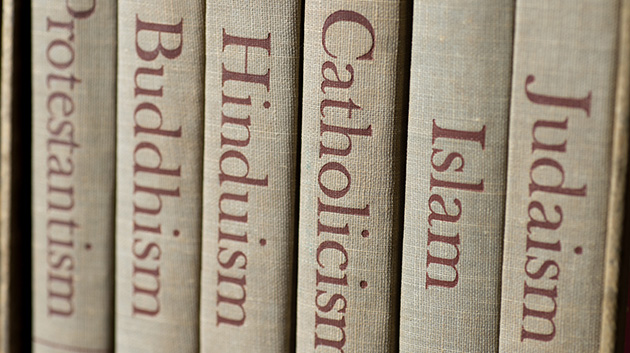Trump Fulfilling His Pledges
What The World Will Look Like When the U.S. Becomes a Religious State
Key points in this article:
- The Trump administration creates a new Religious Liberty Task Force
- Religious freedom is a higher principle than other freedom rights granted to citizens
- Japan should amend Article 20 of the Constitution: the things that made religion a faux pas in the country
The American Founders invoked our Creator four times in the Declaration of Independence — four times. (Applause.) How times have changed. But you know what, now they’re changing back again . . . I pledged that in a Trump administration our nation’s religious heritage would be cherished, protected, and defended like you have never seen before. That’s what’s happening. You see it every day.
So said Trump at the Values Voter Summit in October 2017. Trump declared during his presidential election campaign that he will revive and protect religious freedom, and has been fighting to do so ever since.
He has proposed and taken several measures, one of them being an executive order signed to repeal the Johnson Amendment, a provision that forbade clerics to engage in political activity.
Creating the Religious Liberty Task Force
As another measure, he established the Religious Liberty Task Force in the Department of Justice. Attorney General Jeff Sessions announced it at the Department’s Religious Liberty Summit, saying that:
Freedom of religion is indeed our “first freedom” – being the first listed right of our First Amendment. It has been the core of American principle from the beginning. It is one of the reasons this country was settled in the first place. The promise of freedom of conscience brought the Pilgrims to Plymouth, the Catholics to Maryland, the Quakers to Pennsylvania . . .
Thus the Department of Justice will now operate on the principle of protecting religious freedom. This special task force was established to combat the growing hostility against religious people.
We’ve seen U.S. Senators ask judicial and executive branch nominees about dogma – even though the Constitution explicitly forbids a religious test for public office.
Last October, the Department of Justice issued a memorandum interpreting the religious liberty protections in federal law. It introduces various detailed examples such as this:
Government may not exclude religious organizations as such from secular aid programs, at least when the aid is not being used for explicitly religious activities such as worship or proselytization. For example, the Supreme Court has held that if government provides reimbursement for scrap tires to replace child playground surfaces, it may not deny participation in that program to religious schools.
As Jeff Sessions says, “Under this administration, the federal government is . . . actively seeking, carefully, thoughtfully and lawfully, to accommodate people of faith.”
Trump Takes Leadership Over Realizing Religious Faith
Just before this announcement, the U.S. Department of State invited activists, clerics and NGO representatives from 80 different countries around the world to the Ministerial to Advance Religious Freedom, a conference promoting religious freedom. Part of the conference covered the problem of religious oppression in China, and their persecution of people in Tibet and Xinjiang Uyghur. Uyghur poet and refugee, Tahir Hamut, who was invited, gave a speech comparing the Chinese “re-education” camps in Xinjiang to the concentrations camps during the Holocaust.
Through this conference the U.S. was able to clarify to the world that they are prepared to take leadership in the realization of religious freedom. Vice President Mike Pence clarified this stance in his speech at the Ministerial:
After this great nation secured our independence, the American Founders enshrined religious freedom as the first freedom in the Constitution of the United States. And America has always, and will always, lead the world by our example.
When George Washington, one of the Founding Fathers, was a general during the Revolutionary War his experiences seeing religious minorities such as Quakers being persecuted may have made him think about religious freedom. “It shall be my endeavor . . . to contribute whatever may be in my power towards the preservation of the civil and religious liberties of the American people,” he said in a letter to Methodist bishops.
This no doubt became the start of the country’s idea of protecting religious freedom.
Religious Freedom, the Pinnacle of All Freedoms
In his address, Mike Pence said, “Religious freedom has been our first freedom.” In other words, it is the beginning of all freedoms.
Bob Fu, president of ChinaAid, an NPO promoting religious freedom in China, told The Liberty Magazine
If we didn’t have the freedom to believe in our own conscience and choose our own worldview, there will be no freedom of association or freedom of the press. Religious freedom is the most fundamental freedom, and this is because we are created in God’s likeness.
Freedom is given to us by God. The government could turn us into slaves and destroy our bodies, but our souls are imperishable. They can chain down our bodies, but they cannot chain down our minds. They can torture us, but we are still free to believe in God. It is an inviolable right that no government can take away from us.
Looking at British and American history, all freedom rights – such as freedom of speech and freedom of association – stem from religious freedom. Religious freedom is the pinnacle of all freedoms, and is therefore all the more important.
Article 20 in the Constitution of Japan
In the Constitution of Japan, however, the right of religious freedom is unprotected. While Article 20 claims that “Freedom of religion is guaranteed to all” the following three lines contradict this — if anything they seem to condemn religion. This is especially so for the last line, which reads, “The State and its organs shall refrain from religious education or any other religious activity.”
This sentence turned religion into a faux pas in Japan. The mass media have interpreted the line to mean that they should refrain from reporting any positive news about religion, and the spreading of religion in the workplace is made illegal.
Japanese news companies also warp their reports on Trump. As The Liberty Magazine has discussed, however, the Trump revolution is not just a political-economic revolution: it is a religious revolution that aims to empower a country based upon belief in God.
Yet, news reports in Japan continue to omit the word “God” when quoting his speeches, and choose to completely ignore his remarks made at religious occasions.
These groups claim that atheism is religious freedom too, but it is only a passive freedom. This whole widespread sentiment of atheism and of treating religion as a faux pas comes from Article 20, and it must therefore be amended.
If the belief that god does not exist and that humans are machines becomes accepted as an active right, then democracy will cease to function, because democracy is fundamentally based on the idea that all people are equal because they are all children of God.
Master Ryuho Okawa, Founder and CEO of Happy Science, says thus:
If people are just ‘objects’ or ‘machines’, then they are not endowed with dignity. If democracy is simply a collection of ‘objects’ or ‘machines’ then there is nothing important about it. It is important because people are children of God. We can see that religious freedom and democracy are actually connected.
In other words, the idea that sovereignty lies with the people does not work unless we understand that people are children of God.
A World of Religious Freedom
Mike Pence announced the creation of two new bodies to protect religious freedom in the U.S.” 1) the Genocide Recovery and Persecution Response Program, and 2) the International Religious Freedom Fund. The first is a program that supports (with the help of local religious groups and leaders) individuals and their families who are being persecuted. The second aims at supporting people who are actively participating in the cause of religious freedom all around the world.
The Department of Justice and its Religious Liberty Task Force will protect religions inside the country and work towards creating a method to support a religious nation, while the Department of State’s Ministerial marked the beginning of a movement encouraging countries to embrace faith on an international level. The Trump revolution is ready to be exported worldwide.
As Sam Brownback ambassador-at-large for International Freedom said at the Ministerial, “Religious freedom really, truly is for everyone. It’s a right given by God and it’s a beautiful part of our human dignity.”
Those at the Ministerial got the impression that religious freedom is a right that points to the beautiful part of our human dignity, and is more reverent than all of the other freedoms.
In Japan on the other hand, the government has remained silent about issues concerning human rights. But as Bob Fu told the Liberty Magazine, “Japan is a democratic country, but the government is not committed to protecting religious freedom. I am disappointed that the Japanese government has not done what it should have in a bid to avoid political friction.”
The Japanese government has continued to disappoint activists, but it must abandon its complacency, and truly commit to realizing world peace and religious unity.
(Hanako Cho)



















